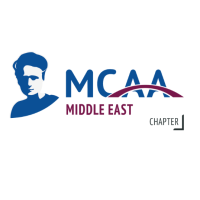

Middle East Chapter
Who we are
The Middle East Chapter is part of the MCAA and a network hub to focus members' activities in the Middle Eastern countries- all countries in the Middle East apart from those with an autonomous chapter. The chapter aims to introduce MSCA opportunities to start and develop productive collaborations between academic and industrial institutions in the member countries and EU institutions. The chapter encourages local networking, motivation, and recruitment between Middle East fellows and MCAA/MSCA.
Objectives
- Encourage local networking and establish a mutually beneficial relationship between MCAA and its alumni within the Middle East region
- Initiate activities and events with added value to the alumni network
- Increase, attract, support, and facilitate the connections between MSCA fellows and alumni
- Interact and partner with external stakeholders within the Middle East region
Joining the chapter
The MSCA fellows from member countries are welcome to join the chapter. Membership is free and open to all MCAA members who have a connection to the Middle East region. Membership to the chapter provides access to the activities, information, and the right to participate in the election for the chapter chair. For the membership, just log onto the MCAA portal (https://www.mariecuriealumni.eu/groups/middle-east-chapter) and click on "join group".
Keep an eye on the chapter's news and future events:
LinkedIn: https://www.linkedin.com/in/mcaa-me-chapter/
Twitter: https://twitter.com/mcaa_me
Contact us on: middle-east.chapter@mariecuriealumni.eu

